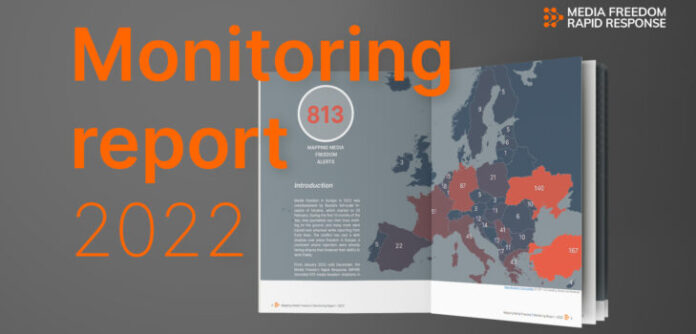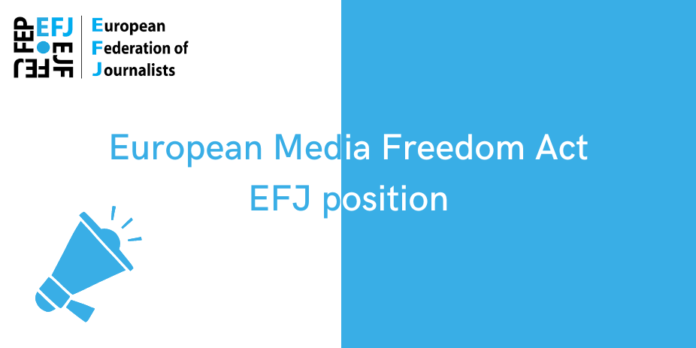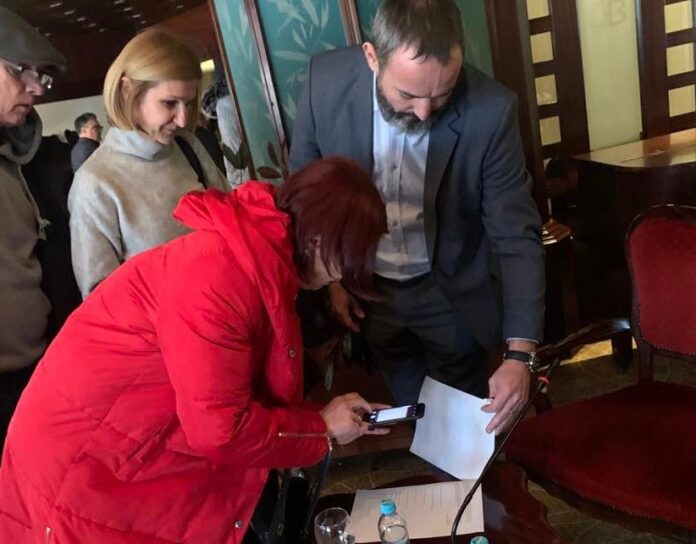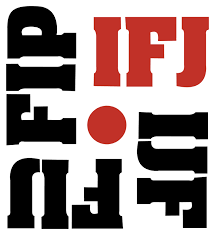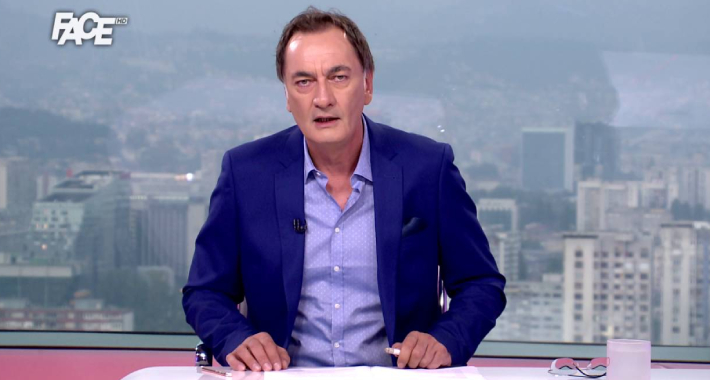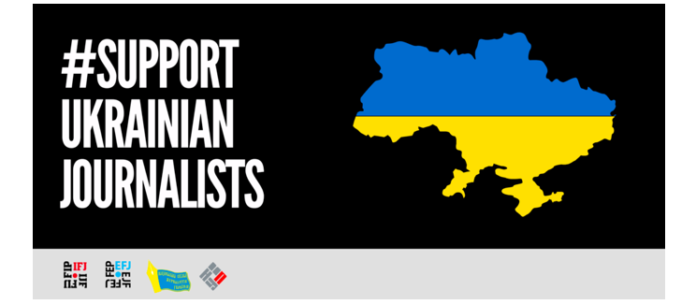The partners of the Media Freedom Rapid Response (MFRR) publish the latest edition of their Monitoring Report, analysing the state of press and media freedom throughout EU Member States and candidate countries in 2022.
The Monitoring Report – produced by the European Centre for Press and Media Freedom (ECPMF), the International Press Institute (IPI), and the European Federation of Journalists (EFJ) as part of the MFRR – gathers and analyses all media freedom violations recorded on Mapping Media Freedom throughout the year 2022.
War in Ukraine
The current monitoring report starts with a thematic chapter on the war in Ukraine and its repercussions on media freedom. The MFRR started monitoring the country immediately after the full-scale Russian invasion started in late February, and it recorded 140 media freedom violations in that period.
Online Attacks
The report also includes a thematic section on online attacks. While in 2021, protests were the most frequent place in which journalists were attacked (39.8%), 2022 data shows that protests only accounted for 21% of the alerts in the EU, while attacks taking place online rose from 14.1% in 2021 to 20.7% in 2022.
Environmental Journalism
A final thematic chapter focuses on the threats faced by journalists covering climate and environmental topics (12 alerts in the EU in 2022). In the past year, as these protests became more disruptive, journalists covering these actions were subjected to obstruction of their work.
Legal attacks
The MFRR partners documented 237 legal incidents against 388 different media actors, including arrests and detentions of journalists and civil and criminal lawsuits. 113 of these press freedom violations were registered in the European Union and 124 in candidate countries.
The report also includes country reports offering a summary of the most relevant threats in the following countries: Belgium, Estonia, France, Germany, Greece, Hungary, Italy, Poland, Spain, and Sweden; and in the following candidate countries: Albania, North Macedonia, Serbia, and Turkey.
Key Figures
- 813 media freedom violations were recorded in EU Member States and candidate countries, involving 1,339 individuals or media outlets.
- 415 alerts were recorded in the EU, while 398 were registered in candidate countries.
- In the EU, the main type of incidents were verbal attacks (42.4% of all alerts), followed by legal attacks (27.2%)
- 10 journalists were murdered – nine in Ukraine and one in Turkey.
- 140 media freedom violations were recorded in Ukraine, which amount to 17.2% of the total registered in all analysed countries in 2022. The MFRR started monitoring Ukraine immediately after the full-scale invasion.
- 86 alerts involving online attacks were recorded in EU member states, ranging from harassment to disinformation campaigns.
- Environmental reporting: 17 incidents (12 in the EU, 5 in Candidate Countries) during 2022 that took place while journalists were covering environmental issues, such as reporting on climate protests or investigating pollution in cities.


